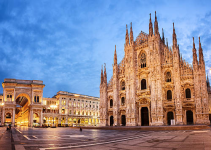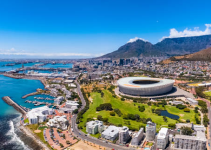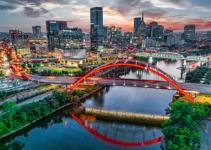Belize hits differently than other Caribbean destinations. Maybe it’s the way the jungle meets the sea, or how you can go from ancient Maya ruins to a beach bar in under an hour. This tiny Central American gem packs a serious punch.
But here’s what nobody tells you in those glossy travel brochures. Belize has its quirks, its pitfalls, its little gotchas that can turn your dream vacation into a headache. Some are obvious. Others? Well, you won’t see them coming until it’s too late.
Your trip deserves better than rookie mistakes and preventable disasters. So let’s talk about what you need to sidestep, skip, and straight-up avoid during your Belizean adventure.

Things to Avoid in Belize
Knowing what to avoid can make the difference between a decent trip and an absolutely incredible one. Here are ten crucial things you’ll want to steer clear of during your time in Belize.
1. Drinking Tap Water Without Thinking Twice
Your body isn’t ready for Belizean tap water. Full stop.
The water infrastructure here varies wildly depending on where you are. Big resorts and tourist areas? Usually fine because they have filtration systems. But step outside those zones and you’re playing Russian roulette with your digestive system. The pipes are old. Treatment standards fluctuate. Even locals who’ve built up immunity over the years will sometimes grab bottled water instead.
Picture this: You’re three days into your trip, finally adjusted to the heat and humidity. Then boom. Food poisoning hits you like a truck, except it’s not food poisoning at all. It’s the water you used to brush your teeth. That ice in your rum punch. The lettuce was washed in tap water at that roadside stand. Now you’re spending your vacation curled up in a bathroom instead of snorkeling the second-largest barrier reef on the planet.
Hotels and restaurants catering to tourists typically use purified water. Ask before you order that smoothie or fresh juice. Ice cubes? Those are usually fine at established places, but street vendors are a gamble. Carry a reusable water bottle and fill it with bottled water. Most accommodations provide complimentary bottles, and you can buy gallon jugs at any grocery store for cheap. Your stomach will thank you, trust me. Nothing ruins a vacation faster than spending quality time with a toilet while your friends are out swimming with nurse sharks.
2. Touching, Standing On, or Breaking Coral
The Belize Barrier Reef stretches over 180 miles and it’s absolutely spectacular. It’s also fragile as hell.
Coral looks solid. It feels solid when you accidentally bump against it. But here’s what most people don’t get: coral is alive. Those colorful formations took decades, sometimes centuries, to grow. When you stand on coral or grab it to steady yourself underwater, you’re killing it. Dead serious. The oils from your skin, the physical pressure, the breakage—all of it causes damage that takes years to recover from, if it ever does.
Beyond the environmental impact, coral will mess you up right back. Coral cuts are notorious. They don’t heal like regular scrapes because coral leaves behind tiny fragments and bacteria in your skin. These cuts get infected easily and can take weeks to heal properly. Some coral species are toxic and cause burning, itching, or allergic reactions that’ll make you miserable for days.
Snorkeling and diving operators will brief you on this, but I’m telling you now because it matters. Keep your distance. Don’t chase that photo op. Wear a wetsuit or rash guard for protection. If you need to adjust your position, use the sandy patches between coral formations, never the coral itself. Watch your fins because they extend further than you think and can smack into reef structures behind you. The Belize Audubon Society reports that reef damage from tourism is one of their biggest conservation concerns. Do your part. Look, admire, photograph from a respectful distance, but don’t touch.
3. Withdrawing Cash from Random, Unmarked ATMs
Money matters get sketchy fast in Belize if you’re not paying attention.
ATM skimming is a real problem here, particularly in San Pedro and Belize City. Criminals install card readers on ATMs that copy your card information while hidden cameras record your PIN. Weeks later, you’re dealing with fraudulent charges halfway across the globe. The devices look professional and blend in seamlessly, so you won’t spot them unless you know what to look for.
Stick with ATMs inside banks during business hours. That’s your safest bet. The major banks—Belize Bank, Atlantic Bank, Heritage Bank—have security measures and regular inspections. Before using any ATM, check for anything that looks loose, misaligned, or recently attached. Wiggle the card reader. Cover the keypad with your hand when entering your PIN. Skip standalone ATMs in convenience stores, bars, or isolated locations entirely. Those are prime targets for tampering.
Credit cards work at most tourist-oriented businesses, but Belize runs on cash for local experiences. Street food, water taxis, small shops, tips—you’ll need physical money. Notify your bank before you travel so they don’t flag your international transactions as fraud. Carry small bills because breaking a $50 USD at a taco stand creates awkward situations. The exchange rate typically hovers around 2 Belize dollars to 1 US dollar, and yes, US currency is widely accepted throughout the country. Just don’t flash large amounts of cash in public, because that brings us to our next point.
4. Walking Through Certain Neighborhoods After Dark
Belize City has a reputation, and honestly, parts of it are earned.
The Southside specifically sees higher crime rates—gang activity, theft, assault. These aren’t tourist areas anyway, but sometimes travelers end up there by accident or poor navigation. Once the sun sets, even the safer neighborhoods require extra caution. Well-lit main streets near cruise ship terminals? Generally okay. Random residential blocks? Absolutely not worth the risk.
I’m not trying to scare you off from Belize City entirely. The city has culture, history, and amazing food. But it requires street smarts. Stay in tourist districts. Use registered taxis from your hotel rather than hailing random rides. Keep valuables hidden. Walk with confidence and purpose, not like a lost tourist checking Google Maps every ten seconds. Groups are safer than solo wandering after dark.
Most visitors skip Belize City altogether and head straight to the cayes or mainland attractions. That’s perfectly fine. If you do spend time there, your hotel staff can give you current, specific advice about which areas to avoid. They know which blocks have issues this week, which streets to skip, and where tourists should and shouldn’t go. Listen to them. Their guidance comes from experience, not paranoia.
5. Buying or Using Illegal Substances
Here’s where things get complicated and honestly pretty stupid for tourists to mess with.
Belize decriminalized small amounts of marijuana back in 2017. You can possess up to 10 grams on private property without facing criminal charges. Sounds chill, right? But there’s a massive catch: buying and selling remain completely illegal. So you can have it, but you can’t legally obtain it. Make that make sense. This weird legal limbo creates a situation where tourists think weed is no big deal, then find themselves in actual legal trouble.
Smoking in public, on the beach, or anywhere visible is still illegal and can get you arrested. Police absolutely target tourists because tourists carry cash, can pay fines, and generally want to avoid legal hassles. You might see locals smoking openly. That’s different. They know the risks, know the cops, know their way around the system. You don’t have those advantages.
Other drugs are completely illegal with serious consequences. We’re talking mandatory minimum sentences, harsh prison conditions, and zero leniency. Cocaine moves through Belize as a transit country between South America and the United States, so drug enforcement takes it seriously. Getting caught with harder drugs means you’re facing Belizean prison time, not a slap on the wrist. Your embassy can only do so much. Your vacation will turn into a nightmare involving lawyers, court dates, and potentially years of your life gone.
Skip it entirely. The risk versus reward doesn’t add up. Enjoy rum punch, Belikin beer, and local cashew wine if you want a buzz. Leave the illegal stuff alone.
6. Underestimating the Sun and Heat
The Belizean sun doesn’t play around. It’s a different beast than what you experience at home, even if you live somewhere sunny.
You’re close to the equator here. UV intensity is higher. Combine that with humidity, reflection off water, and the fact that you’re probably spending way more time outside than usual, and you’ve got a recipe for severe sunburn. I’ve seen tourists turn lobster-red after two hours of snorkeling, blistering so badly they spent the next three days miserable in their hotel room. That’s not a vacation, that’s torture.
Sunscreen goes on before you leave your room. Reapply every two hours, more if you’re in and out of water. The reef-safe stuff matters here because regular sunscreen chemicals kill coral. Look for mineral-based formulas with zinc oxide or titanium dioxide. Those white-cast sunscreens your Instagram-perfect self wants to avoid? They work, and the reef needs you to use them.
Heat exhaustion sneaks up fast. You’re walking through jungle ruins, sweating buckets, having an amazing time. Suddenly you feel dizzy, nauseous, weak. Your head pounds. You’re not thinking clearly. That’s your body screaming for water and shade. Drink way more water than seems necessary. Carry a refillable bottle everywhere. Take breaks in the shade. Wear a hat. Lightweight, long-sleeved shirts actually keep you cooler than tank tops because they block direct sun exposure. Cotton dries slowly in this humidity, so quick-dry synthetic fabrics work better. Pack that aloe vera gel because even with precautions, you’ll probably get some sun. Better to have it and not need it.
7. Booking Tours Through Unauthorized or Unreliable Operators
Tour quality varies massively in Belize, and choosing the wrong one can ruin your day or worse.
Anyone can claim they run tours here. Licensing and regulation exist, but enforcement is inconsistent. That friendly guy on the beach offering a “great deal” on cave tubing might not have insurance, safety equipment, or any actual training. When something goes wrong—equipment fails, someone gets hurt, the tour location is closed—you have zero recourse. Your money is gon,e and your day is shot.
Cheap tours usually mean cutting corners. Overcrowded boats. Expired snorkel gear. Guides who don’t know the history they’re supposedly explaining. One popular cave attraction had an unlicensed operator lead a group through during the rainy season against official warnings. Flash flooding trapped people inside. Emergency services had to rescue them. That could’ve been deadly, all because someone wanted to save twenty bucks.
Book through established companies with verifiable reviews, proper insurance, and safety certifications. Your hotel can recommend reputable operators. The Belize Tourism Board maintains lists of licensed guides and tour companies. Yes, you’ll pay more. That money covers insurance, equipment maintenance, trained guides who know first aid, and the actual sites you’re visiting. Read recent reviews, not just the five-star ones from three years ago. Check if they have functioning phone numbers and physical addresses. Ask about group sizes, what’s included, and cancellation policies. A legitimate operator will answer all your questions without getting defensive. Trust your gut. If something feels off about a tour company or their representative, walk away. Plenty of excellent operators exist who’ll give you an amazing, safe experience.
8. Ignoring Local Customs at Religious and Cultural Sites
Belize is predominantly Catholic with a growing evangelical Protestant population. Religious sites hold deep meaning here.
Showing up to a church in your beach cover-up or shirtless is disrespectful and will get you turned away. Women should cover their shoulders and avoid short shorts or revealing clothing. Men need shirts. This isn’t about being prudish; it’s about respecting sacred spaces. Some Maya sites have specific cultural protocols too. Certain caves were used for ceremonies and still hold spiritual significance for modern Maya communities.
Loud behavior, inappropriate photos, touching artifacts or structures without permission—these things mark you as an ignorant tourist and can genuinely offend people. At Actun Tunichil Muknal cave, you’re walking through an ancient burial site. The “Crystal Maiden” skeleton you see has been there for over a thousand years. Treating it like a roadside attraction dismisses its cultural and historical importance.
Ask before taking photos of people, especially in traditional dress. Many folks don’t mind, but some do, particularly in smaller villages where tourism isn’t the main industry. Offering a small tip for photos is common practice and appreciated. Learn a few basic Spanish or Kriol phrases. Even a simple “good morning” or “thank you” in the local language shows you’re making an effort. Belizeans are generally warm and welcoming, but that warmth extends further when you demonstrate respect for their culture.
9. Overpacking or Bringing the Wrong Gear
Your suitcase says a lot about whether you understand Belize or not.
Forget the hair dryer, forget the bulky towels, forget half your wardrobe. Belize is casual as hell. You need a few swimsuits, quick-dry clothing, one nice outfit for a decent restaurant, and comfortable walking shoes. That’s basically it. The humidity will make your carefully straightened hair curl within minutes anyway. Those white pants you packed? They’ll be stained orange from cave mud by day three. Heavy jeans are miserable in this heat.
Bring a good waterproof bag for your electronics. Reef-safe sunscreen, as mentioned. Insect repellent with DEET because the mosquitoes here carry dengue, Zika, and other diseases you don’t want. A small first aid kit with the basics: bandages, antibiotic ointment, pain relievers, and anti-diarrheal medication. Water shoes for rocky beaches and jungle hikes with river crossings. A headlamp or small flashlight, because power outages happen and some accommodations are genuinely dark at night.
Skip expensive jewelry and designer anything. You’re going to a country where the average person lives on very little income. Flashing wealth is tactless and makes you a target. Leave it at home. Bring a dry bag for boat trips and water activities. Most tours provide snorkel gear, but having your own mask that fits properly makes a huge difference. A lightweight rain jacket packs small and saves you when afternoon storms roll through. Ziploc bags in various sizes are surprisingly useful for keeping things dry, separating wet swimsuits, and storing snacks. Think practical, not pretty. This is adventure travel, not a resort vacation, even if you’re staying at a resort.
10. Skipping Travel Insurance
This is the thing people skip and then deeply regret.
Medical emergencies in Belize get expensive fast. The healthcare system has limitations, especially outside major towns. Serious injuries or illnesses often require medical evacuation to the United States or Mexico. That helicopter ride costs tens of thousands of dollars out of pocket. Your regular health insurance probably doesn’t cover international medical evacuation. Trip cancellation, lost luggage, emergency dental work, stolen belongings—travel insurance handles all of it.
Activities like zip-lining, cave tubing, diving, and snorkeling are technically considered adventure sports. If you get hurt doing them without coverage that specifically includes adventure activities, you’re paying for everything yourself. Read the policy carefully. Make sure it covers medical expenses, evacuation, the specific activities you plan to do, trip cancellation, and baggage loss. Policies run anywhere from $50 to $200, depending on trip length and coverage level. That’s cheap compared to a $30,000 medical bill.
Companies like World Nomads, Allianz, and Travel Guard offer solid coverage. Buy it when you book your trip, not the week before you leave. Some policies include “cancel for any reason” coverage if purchased within a certain timeframe of your initial trip deposit. Keep your policy documents accessible on your phone. Know how to contact them in an emergency. Nobody plans to get hurt or sick on vacation, but it happens. Insurance turns a potential disaster into an inconvenience.
Wrapping Up
Belize offers incredible experiences you won’t find anywhere else. Pristine reefs, ancient ruins, jungles teeming with wildlife, and some of the friendliest people you’ll ever meet. Avoiding these ten pitfalls means you actually get to enjoy all of it without the headaches, health issues, or safety concerns that trip up unprepared visitors.
Pack smart, stay aware, respect the environment and local culture, and you’ll have the kind of trip that becomes the story you tell for years. Safe travels, and soak up every moment of this amazing country.


